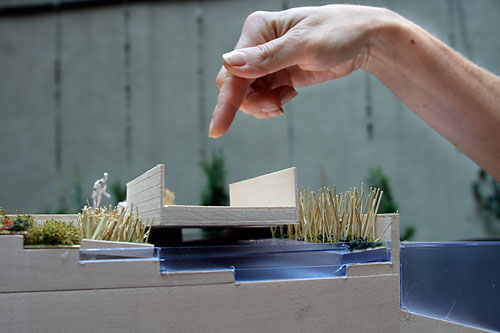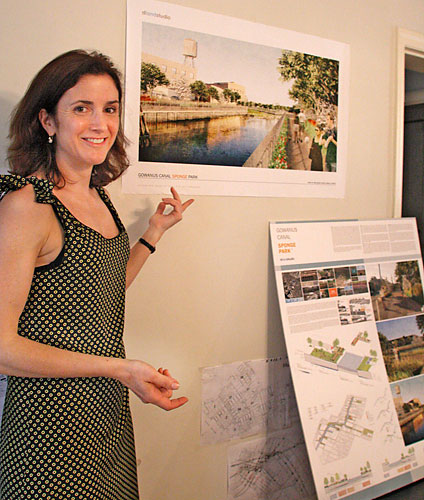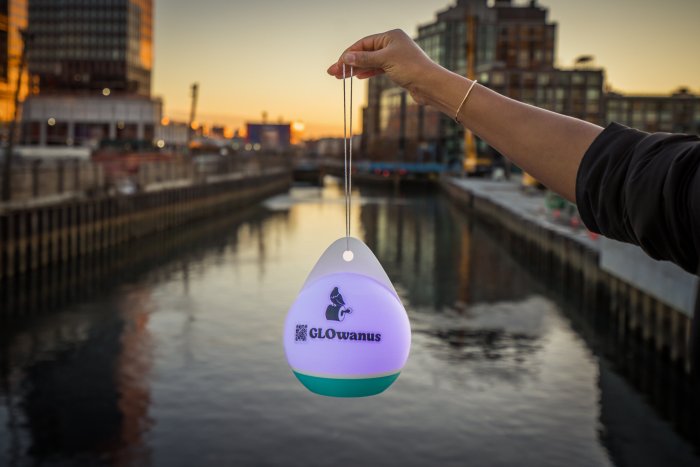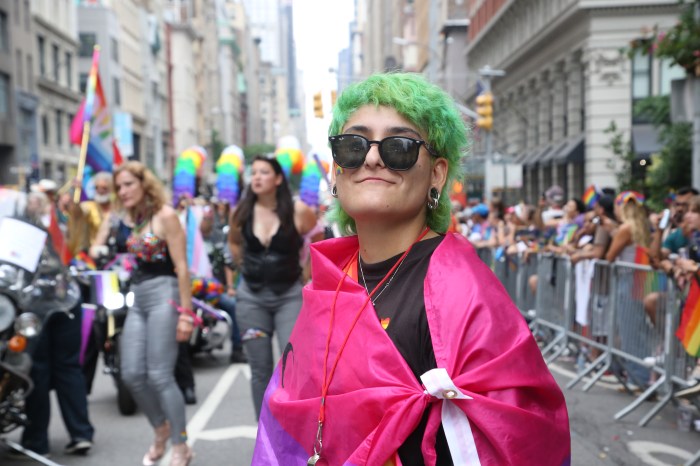The proposed Sponge Park along the banks of the fetid Gowanus Canal is finally living up to its name in one way: it’s soaking up federal money.
A pilot version of the park, whose name actually refers to how it will employ vegetation that would retain water and prevent sewer overflows on rainy days, is looking like a go, thanks to a cool $300,000 earmark sponsored by Rep. Nydia Velazquez (D–Carroll Gardens).
“It would be a great amenity for the city,” said Susannah Drake, an architect. The Sponge Park is the brainchild of her design firm, dlandstudio, and the Gowanus Canal Conservancy. “The water is dirty and we have to start cleaning it up incrementally.”
The House appropriation isn’t enough to build a full-sized greenway alongside the infamous Lavender Lake, but it might be enough for a one-block esplanade. The designers say that plant life can reduce runoff into the canal as well as suck toxins out of the stagnant estuary.
“This project would create much-needed public space, while addressing ongoing environmental concerns. Cleaning up the Gowanus Canal will never be effective if we don’t also come up with solutions like the Sponge Park that prevent future contamination,” Velazquez said in a statement.

Velazquez’s earmark now awaits Senate approval.
The daring idea to convert one of Brooklyn’s most polluted wastelands into an innovative park was unveiled over a year ago. Since then, the Conservancy has been courting the city for its support and several agencies have signaled their interest in the project.
But the political landscape has shifted since the Sponge Park idea was born. Now, the city and federal government are locked in a debate about how to clean the Gowanus.
The Environmental Protection Agency favors declaring the foul canal a Superfund site, a program that would force polluters, often with lengthy court battles, to pay for the bulk of the cleanup. The city argues it can do the work faster through its own proposal, an untested approach of voluntary cooperation from polluters and funding from the US Army Corps of Engineers.




















